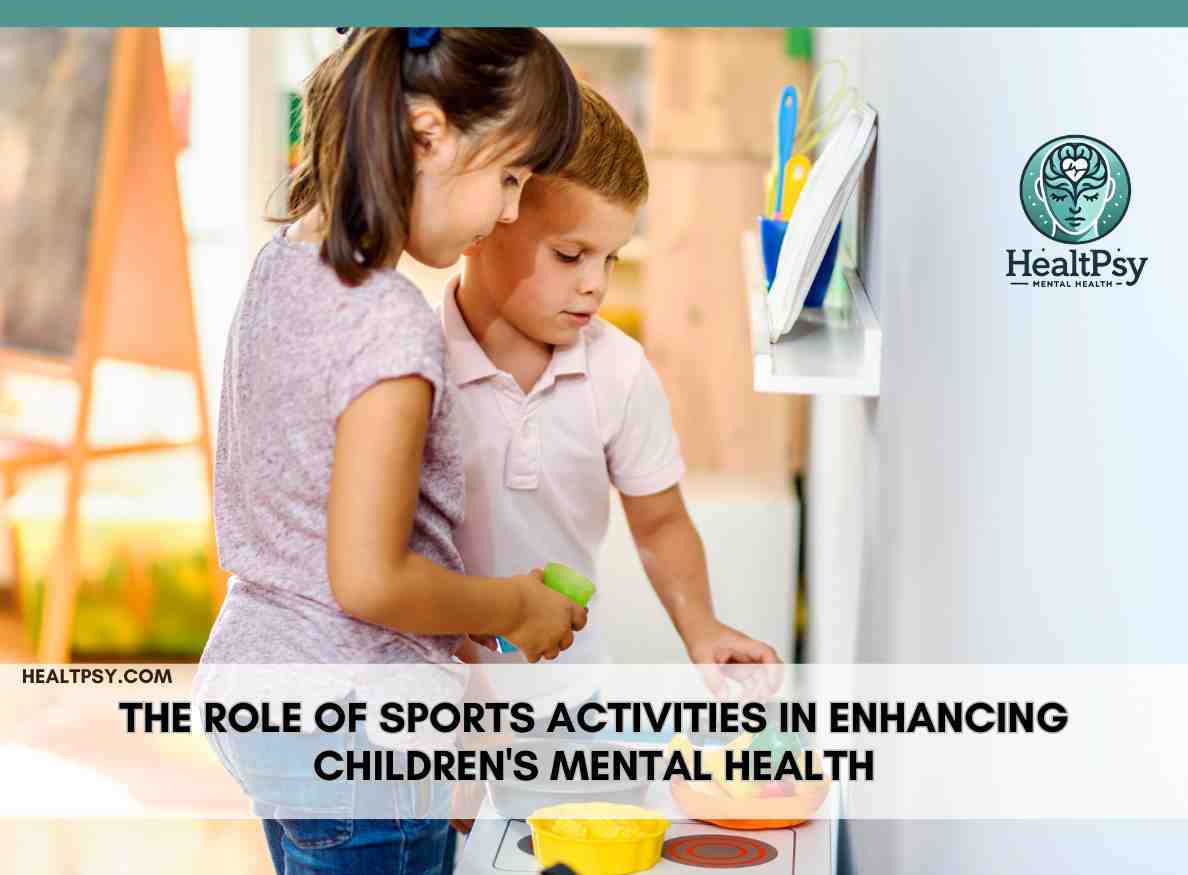7 Powerful Ways Sports Activities Improve Children’s Mental Health
Introduction
Sports activities play a crucial role in children’s physical and mental well-being. Engaging in sports not only improves physical fitness but also contributes significantly to emotional regulation, social skills, and overall mental health. This article explores how sports activities enhance children’s mental health and provide them with essential coping mechanisms for life challenges.
For more insights on the benefits of physical activities for mental well-being, visit the American Psychological Association (DoFollow).
The Psychological Benefits of Sports for Children
Sports provide a structured environment where children can develop key psychological and emotional skills. Some of the major benefits include:
1. Reducing Stress and Anxiety
Regular physical activity helps in reducing stress hormones like cortisol and releases endorphins, which promote feelings of happiness and relaxation. Studies have shown that children who engage in sports are less likely to suffer from anxiety and depressive symptoms. Furthermore, structured physical activity provides a healthy distraction from negative thoughts and worries.
For further reading, check out the World Health Organization’s report on mental health and physical activity (DoFollow).
2. Boosting Self-Esteem and Confidence
Participating in sports activities helps children build self-confidence as they achieve new skills, set goals, and experience success. Encouragement from coaches, parents, and peers also fosters a positive self-image. The ability to work towards personal goals and see progress boosts their sense of accomplishment and self-worth.
3. Enhancing Social Skills and Teamwork
Team sports teach children essential social skills such as cooperation, communication, and teamwork. Engaging with peers in a structured environment allows children to form friendships and develop a sense of belonging. Additionally, learning to navigate group dynamics and handle conflicts in a team setting prepares children for real-world interpersonal relationships.
4. Improving Emotional Regulation
Sports provide children with a healthy outlet to express emotions and cope with challenges. Learning to manage wins and losses helps them develop resilience and emotional stability. Additionally, physical exertion releases pent-up energy and tension, reducing the likelihood of emotional outbursts or frustration.
5. Encouraging Discipline and Responsibility
Following a training schedule, adhering to rules, and respecting teammates and coaches instill a sense of discipline and responsibility in children, which benefits them in various aspects of life. Sports participation teaches children the value of consistency, perseverance, and dedication, which are crucial traits for personal and academic success.
The Impact of Sports on Academic Performance
There is a strong correlation between physical activity and cognitive function. Studies suggest that children who participate in sports perform better academically due to improved concentration, problem-solving skills, and memory retention. Additionally, the discipline and time-management skills developed through sports help children balance their academic and extracurricular responsibilities effectively.
How Different Sports Contribute to Mental Health
Various sports activities offer different mental health benefits. Below are some examples:
1. Individual Sports (e.g., Swimming, Tennis, Gymnastics)
- Enhance self-reliance and personal goal-setting
- Develop focus and determination
- Help children build independence and self-motivation
2. Team Sports (e.g., Soccer, Basketball, Volleyball)
- Foster teamwork and cooperation
- Improve communication skills and social bonding
- Teach accountability and collective responsibility
3. Mind-Body Exercises (e.g., Yoga, Martial Arts)
- Reduce stress and promote mindfulness
- Enhance emotional stability and relaxation
- Encourage self-discipline and focus
Encouraging Children to Participate in Sports
Parents and educators play a significant role in motivating children to engage in sports. Some effective strategies include:
- Providing opportunities to try different sports and discover interests
- Encouraging a balance between sports and academics
- Promoting a positive attitude towards physical activity rather than focusing solely on competition
- Setting an example by engaging in sports and physical activities themselves
- Creating a supportive environment where children feel comfortable trying new activities
- Celebrating achievements, no matter how small, to reinforce positive reinforcement
Conclusion
Sports activities are essential for children’s mental health, offering numerous psychological, emotional, and social benefits. Encouraging participation in sports from a young age fosters a healthier, more balanced approach to life, helping children develop resilience, confidence, and essential life skills. By promoting sports involvement, parents and educators can play a crucial role in shaping a healthier future for children. Sports not only create physically strong individuals but also emotionally stable and socially competent members of society.
For further insights on mental health, check out our article on How to Maintain Mental HeaLTH
Sports Activities. Sports Activities Sports Activities Sports Activities
you might also like





